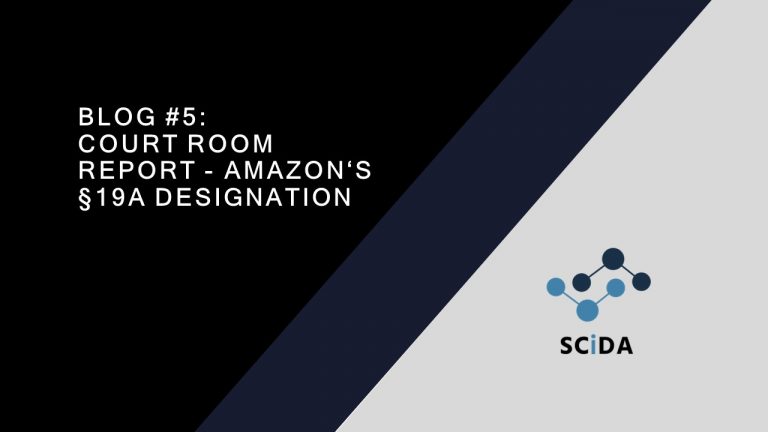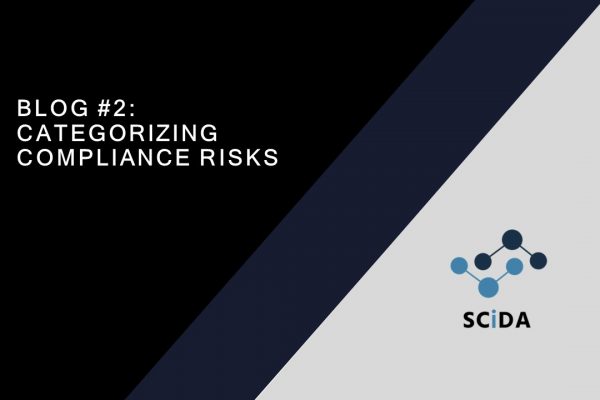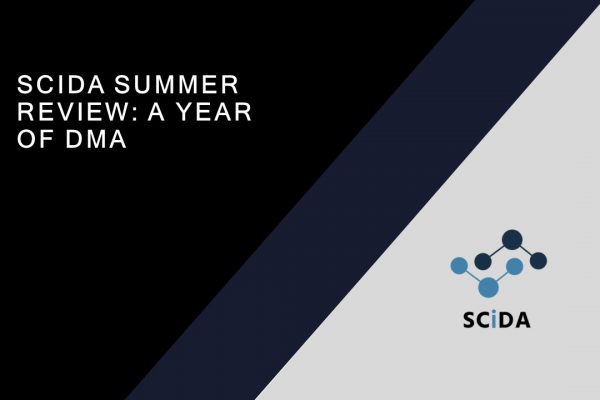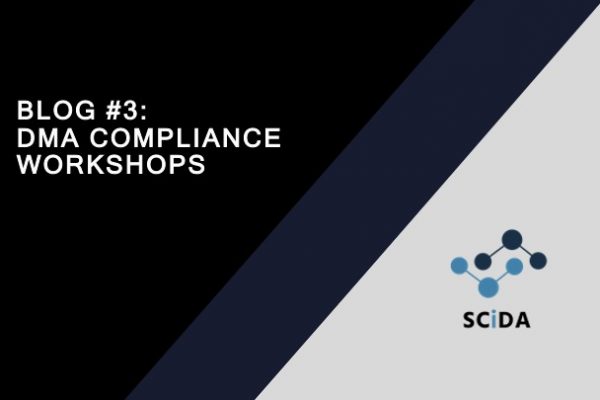While most of us would have a clear intuition how to respond to the question whether the e-commerce giant Amazon has a paramount significance across markets, Amazon appealed the German Bundeskartellamt’s designation decision under Sec. 19a (1) GWB. The trial entered a second round of hearings on 23 April 2024 resulting in a dismissal of the appeal and confirmation of the Bundeskartellamt’s findings by the court. For everyone interested in finding out what could possibly speak against Amazon’s paramount significance for competition across markets, here is what happened yesterday.
By Sarah Hinck
How we got here
… to Karlsruhe, Germany, the seat of Germany’s Federal Court of Justice– the Bundesgerichtshof (BGH):
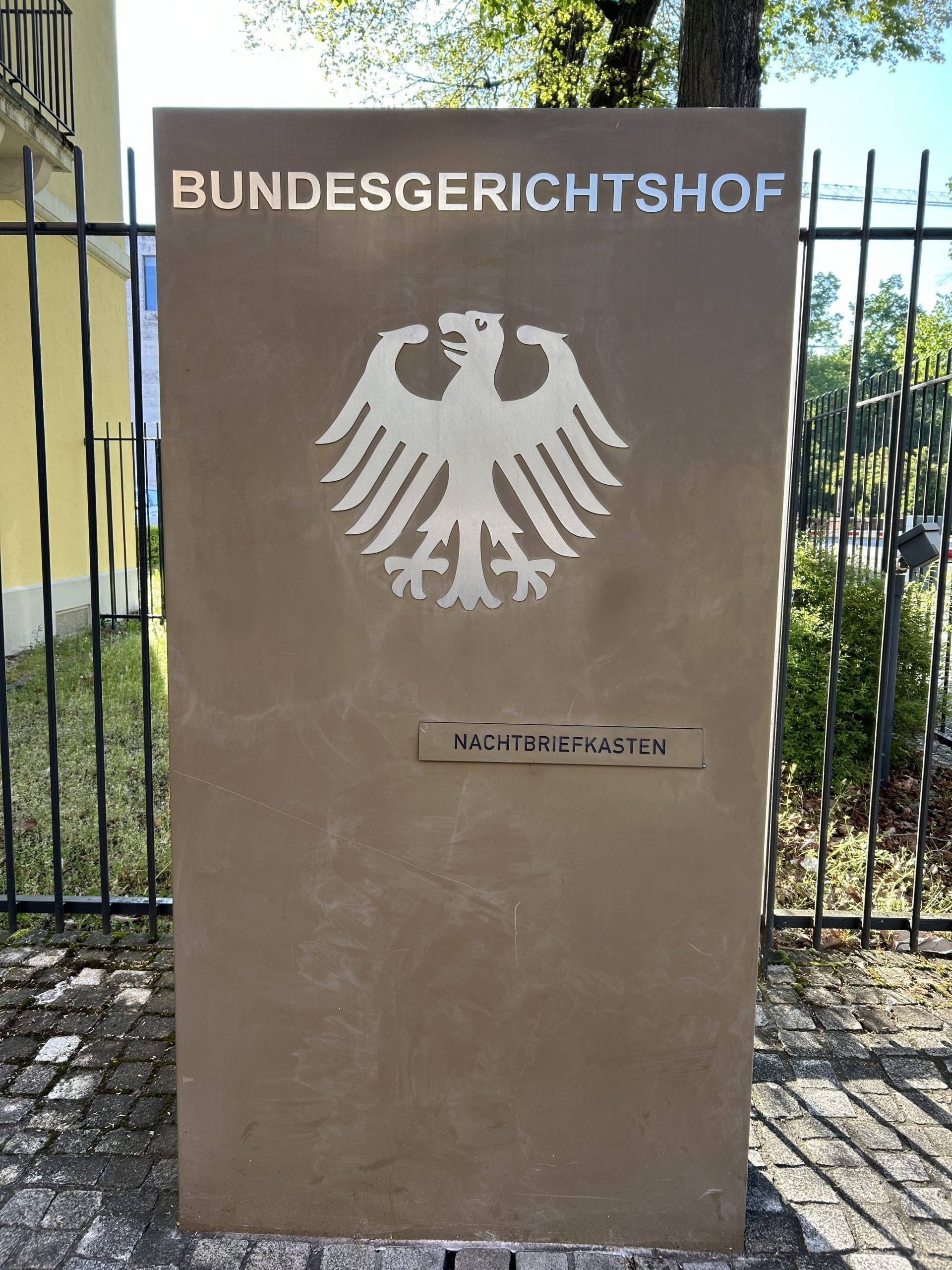
The BGH is the first and last instance directly responsible for appeals against the national competition authority’s (Bundeskartellamt) decisions under the (not so) new Sec. 19a of the German Act against Competition Restraints (Gesetz gegen Wettbewerbsbeschränkungen – GWB). This is a novel role for the BGH: The two-instance procedure normally provided for antitrust complaints, which starts at the Düsseldorf Higher Regional Court, does not apply for Sec. 19a GWB cases. As a result, the BGH acts as the court of first and last instance and has to assess the substance of the case – not only the application of the law according to its usual role as appeal instance.
Sec. 19a GWB grants the Bundeskartellamt additional powers to tackle competition restraints caused by large digital platforms. The provision foresees two steps: First, the Bundeskartellamt can determine that an undertaking is of paramount significance for competition across markets (Sec. 19a (1) GWB). Second, the Bundeskartellamt can prohibit certain conducts of designated companies according to a list of anticompetitive practices set out in Sec. 19a (2) GWB (click here for more details on Sec. 19a GWB). So far, the Bundeskartellamt has designated Alphabet, Amazon, Apple and Meta (Microsoft still pending) as undertakings of paramount significance for competition across markets and already initiated a range of proceedings against these platforms to investigate conduct prohibited under Sec. 19a GWB. Both, Amazon as well as Apple have appealed the Bundeskartellamt’s designation decisions.
In the case of Amazon, the Bundeskartellamt found that every single criteria set out in Sec. 19a(1) GWB to determine whether an undertaking has a paramount significance across markets is met based on the following key findings:
- Amazon’s dominant position on one or several markets (Sec. 19a (1) no. 1 GWB) given its key position in the e-commerce sector and the hybrid structure of its platform where it is active as both platform operator as well as retailer.
- Vertical integration and activities on otherwise related markets (Sec. 19a (1) no. 3 GWB) in the form of Amazon’s highly integrated e-commerce ecosystem including a broad portfolio of business activities.
- Amazon’s significant relevance for third party access to supply and sales markets (Sec. 19a (1) no. 5 GWB) based on its strategic gatekeeper position that enables Amazon to set the market access rules for business users and influence their business activities through rule setting and other control mechanism.
- Access to data relevant for competition (Sec. 19a (1) no. 3 GWB) as Amazon has cross-service access to extensive and high-quality data that competitors in particular are unlikely to have in the same form.
- Amazon’s financial strength and access to other resources (Sec. 19a (1) no. 4 GWB), forming the financial basis for financing potential competitive advances.
Amazon disagrees. In short, Amazon’s lawyers argued that both online and offline, the retail market in which Amazon operates is very large and highly competitive. In addition, Sec. 19a GWB violates constitutional as well as EU law: Sec. 19a GWB should have been notified to the EU Commission according to the EU Directives (EU) 2015/1535 and 2000/31/EG before it entered into force, violates fundamental rights and contradicts the Digital Markets Act (DMA).
The first round of hearings held before the BGH in June 2023 focused on a potential notification obligation according to the EU Directives. Its outcome seemed to be largely unsuccessful for Amazon. The BGH Senate refrained from submitting a request for a preliminary ruling to the Court of Justice of the European Union so far and, reportedly, indicated that there will be no finding of a violation of constitutional or EU law given the importance of regulating digital platform markets. In addition, the BGH implied that Sec. 19a GWB does not violate the DMA as it is consistent with the exception rule set out in Art. 1(5) DMA.
Amazon was unable to change the BGH’s mind in the second round of hearings. In one go, the BGH not only managed to close the hearing without taking a break around lunch time, but also announced its decision in the late afternoon the same day accompanied by a press release. The full decision will be published at a later stage as it is common practice in Germany.
The Trial – Best of
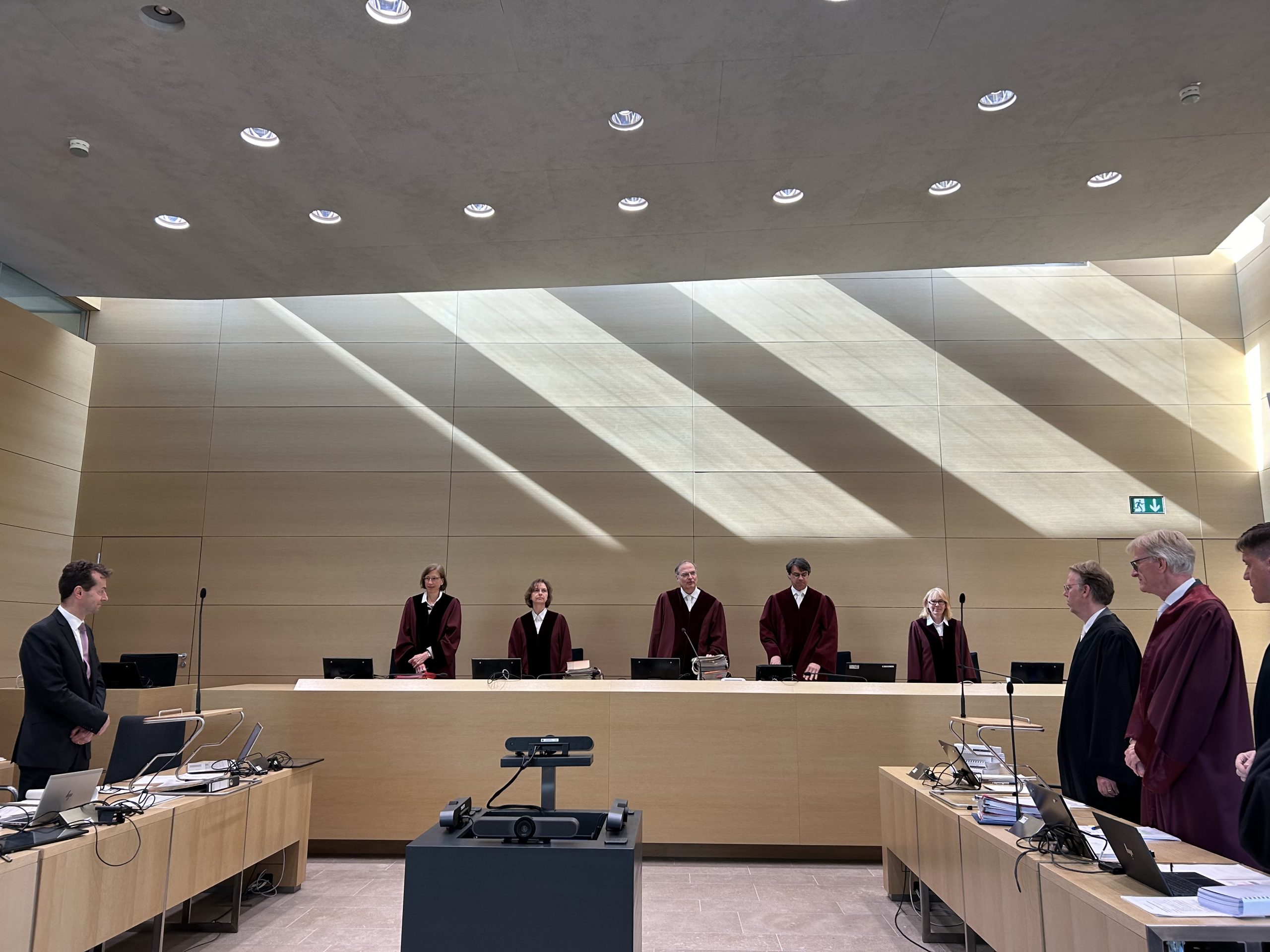
While all eyes were on Germany’s constitutional court (Bundesverfassungsgericht) on Tuesday morning, a few blocks away from the BGH, negotiating the planned amendments to Germany’s election system, only a small crowd gathered in front of the BGH: Amazon representatives, a large Bundeskartellamt delegation as well as a couple of junior associates from other well-known law firms in charge of gatekeeper representation, interested academics and press. Given the uptake of DMA enforcement, interest for its older Sec. 19a GWB sister might have died down or we ran out of steam after the first round of hearings?
Not according to the chief justice, Wolfgang Kirchhoff, who made very clear right in the beginning where the journey is heading (both in terms of substance as well as closing the hearing right before lunch time). He continued by introducing the parties’ representatives: For the Bundeskartellamt, Jörg Nothdurft, head of the litigation division entered the race, accompanied by Julia Topel, head of the division responsible for e-commerce, and other staff members. Amazon was represented by its lawyers, Hengeler Mueller partners Thorsten Mäger as well as Dirk Uwer supported by the BGH lawyer Reiner Hall and Amazon’s Legal Director of Germany, Sabine Meinecke. Then, the BGH shared its preliminary views with the attendees – which also happened to be the reasoning of its final decision. In short:
- Sec. 19a (1) GWB does not violate EU law or German constitutional law.
- Sec. 19a GWB is competition law and applicable alongside the DMA.
- Notification of Sec. 19a GWB to the EU Commission according to the EU Directives (EU) 2015/1535 and 2000/31/EG was not required.
- The Bundeskartellamt’s findings that the criteria to determine an undertaking of paramount significance for competition across markets are met raise no objections.
- Sec. 19a (1) GWB does not require proof of a concrete threat or impediment for competition.
Beyond these main findings, the trial raised a couple of additional questions and offered some answers worth highlighting (read below for more details), which were debated between the BGH, the Bundeskartellamt and Amazon’s representatives. While the list of disagreements seemed long, the parties took some time for complimenting each other. The Bundeskartellamts head of litigation, Jörg Nothdurft opened his statement by reassuring everyone in the room that “we love Amazon” for its unmatched customer service before he turned to the other (darker) side of the coin which retailers get to see. Amazon’s representatives on the other hand, complimented the Bundeskartellamt’s head of litigation for his eloquence before rebutting each of his arguments. The BGH, on the other hand, was very content with the parties’ efficient presentations (enabling the court to head for lunch in time) in light of the 500 pages submission the court had received from each party over the course of the proceeding (not counting attachments).
Back to substance, the BGH did not seem to make much use of the newly granted responsibilities under Sec. 19a GWB to review the facts of the case based on the discussions during the hearing, but mainly sticked to its common turf circling around the underlying legal questions:
Is Sec. 19a GWB competition law or a “Mini DMA”?
This fundamental question of distinguishing competition law from regulation appeared to be also the fundament of Amazon’s defense against the Bundeskartellamt’s designation decision under Sec. 19a (1) GWB. Amazon argued that Sec. 19a GWB is a “Mini DMA” and as such is superseded by the DMA according to Art. 1(5) DMA. At least – Amazon believed – this unresolved question would require that the BGH requests a preliminary ruling by the Court of Justice of the European Union.
Amazon’s lawyers admitted that the subject matter of this proceeding may not be whether it is appropriate to have stricter rules in place for large digital platforms. Subject matter of the proceeding should rather be who is responsible for enforcing these rules. Art. 1(5) DMA would clearly state that national competition authorities should not enforce “Mini-DMAs”. But they can enforce competition law against platforms that meet the requirements under Art. 1(6) DMA and Recital 10 of the DMA. According to Amazon, those requirements are not met in the case of Sec. 19a GWB.
In this argument, the Bundeskartellamt saw an attack on its diligence to investigate properly under Sec. 19a (2) GWB. It argued the mere concern that the Bundeskartellamt would not investigate conduct under Sec. 19a (2) GWB thoroughly and assess every requirement of the provision in accordance with Recital 10 of the DMA, should be subject of a separate Sec. 19a GWB court proceeding and does not turn Sec. 19a GWB into regulation rather than competition law. To distinguish Sec. 19a GWB from regulation, it would be worth taking a look at how DMA enforcement takes place, argued the Bundeskartellamt: There, Amazon is subject to a set of self-executing rules and has to present in informal compliance workshops ahead of any formal procedures how it intends to change its business model.
For the BGH the question mattered how Sec. 19a GWB could be qualified as regulation if it foresees a two-step approach where each step requires individual assessment of the Bundeskartellamt before conduct obligations are imposed. Amazon was quick to reply: Sec. 19a (1) GWB sets out structural criteria which includes typical terminology from regulation: Criteria listed in Sec. 19a (1) GWB such as vertical integration as well as relevance for third-party access to supply and sales markets mirror typical regulation such as energy industry law as well as telecommunication laws. The entire Sec. 19a GWB would show significant parallels with practices of the Bundesnetzagentur, the German authority responsible for regulating the energy and telecommunication sector.
In addition, the designation under Sec. 19a (1) GWB can not only be considered a mere warning sign. Rather, it already limits Amazon’s entrepreneurial scope and influences its investment decisions. However, the BGH was not convinced by those arguments and denied any systemic inconsistencies. The court indicated that also Sec. 19 GWB, the German abuse control provision, envisages a two-step approach where in a first step the Bundeskartellamt has to establish a dominant position before it turns to specific conduct. The sole purpose for separating the designation under Sec. 19a (1) GWB is efficiency and this decision can be even combined with a decision under Sec. 19a (2) GWB. In addition, Sec. 19a GWB is designed as ex post control rather than ex ante control, which seemed to the be the decisive distinguishing factor for the court. Amazon unsuccessfully tried to weaken this point by arguing that also in regulation ex ante rules go hand in hand with ex post control. Also, the designation under Sec. 19a (1) GWB would indeed already have ex post effects as it limits Amazon’s scope of action.
Does Sec. 19a (1) require proof of a concrete threat for competition?
As the BGH stated right in the beginning of the hearing, the answer to this question was a decisive factor for the subsequent analysis whether the criteria listed in Sec. 19a (1) GWB to determine whether Amazon has paramount significance for competition across markets would be met. The Bundeskartellamt kindly summarized the areas of the parties’ disagreement: The Bundeskartellamt applies the criteria under Sec. 19a (1) GWB in a structural and company related manner, Amazon claimed that these criteria should rather be interpreted in a market- and conduct-oriented way. Amazon accuses the Bundeskartellamt of missing necessary requirements in Sec. 19a (1) GWB, the Bundeskartellamt accuses Amazon of adding requirements to Sec. 19a (1) GWB.
Amazon indeed argued, if Sec. 19a GWB should be considered competition law, the assessment of its requirements should meet competition law standards. Therefore, it would not be sufficient to only list vertically or otherwise integrated business segments in the case of Sec. 19a (1) no.3 GWB. Actual potential threats to competition must be shown by the Bundeskartellamt, otherwise an undertaking would be punished simply for doing well. So well, that even the Monopolkommission is a fan, argued Amazon’s lawyer. Thorsten Mäger motivated this statement by citing the well know German institution for advising the German government on competition policy and regulation, which has implied how well the logistic market is doing and how well Amazon logistics have revived competition in this sector.
The BGH seemed amused rather than impressed by this reference. According the BGH, no such proof of a potential threat for competition is required under Sec. 19a (1) GWB. The wording of the provision provides for structural criteria, not specific market conduct. The mere potential to impede competition based on these structural criteria is sufficient which is reflected by the purpose of Sec. 19a (1) GWB to enable the Bundeskartellamt to intervene swiftly. This purpose would not be achieved if the Bundeskartellamt had to prove actual effects on the market.
The reasoning of the court significantly impacted the depth of analysis required under Sec 19a (1) GWB: the Bundeskartellamt must show that Amazon has financial strength and other resources, such as access to data. It is not required to take into account the growth of competitors or to show whether Amazon actually makes use of the data.The BGH stressed again, Sec. 19a (1) GWB is only a warning sign and does not impose self-executing obligations on the undertakings concerned. This justifies shifting the assessments of concrete threats to competition to Sec. 19a (2) GWB proceedings. According to the Bundeskartellamt and the BGH, this is the right place for the assessment of requirements that look into concrete market conduct and potentially, objective justifications brought forward by the platforms.
Supporting acts
A couple of other noteworthy defenses were raised by Amazon. One that almost failed the red face test was the submission that Amazon is not really a digital ecosystem, at least not all of Amazon. Sec. 19a (1) GWB should therefore also not be applicable to the entire Amazon group. Unlike the other GAFA’s, Amazon’s business is not a purely digital business model as its growth is limited by physical resources and products are delivered physically. Amazon argued that it is also not an ecosystem as there is no anchor product such as, e.g., an operating system. Amazon Marketplace and Amazon Web Services, for example, are completely unrelated services. Whoever is not convinced by this argument is in good company. Neither the BGH nor the Bundeskartellamt spent a lot of time to respond to this defense. The BGH merely clarified that, in this regard, Sec. 19a GWB is different from traditional abuse control as Sec. 19a GWB is intended to cover potential threats across markets not on one market. Hence, the entire group and its structure is an appropriate addressee for the purpose of the provision.
In addition, it became clear during the hearing that market definitions still matter. Sec. 19a (1) no. 1 GWB states that for determining whether an undertaking has paramount significance for competition across markets, the Bundeskartellamt shall consider its dominant position on one or several markets. The BGH made clear that the relevant product market is the market for online marketplace services for retailers not any kind of distribution channel, which excludes brick and mortar stores and other distribution channels such as a retailer’s website given that the reach is much more limited. The SSNIP test alone is not sufficient to change this finding as it has its weaknesses in multi-sided markets and cannot be the decisive factor according to BGH and Commission precedents. The geographic market is Germany. Amazon’s attempts to argue that the majority of retailers active on the Amazon are not based in Germany were dismissed by the court, explaining that the decisive factor is whether the Amazon Marketplace customers are based in Germany as shown by the relevant user data and the value added tax imposed for transactions in Germany.
Rule-setting power plays an important role for the assessment of the relevance of the digital platform for third party access to supply and sales markets and its related influence on the third-party business activity under Sec. 19a (1) no. 3 GWB. Although Amazon argues that every marketplace sets rules and if those are fair and non-discriminatory rule-setting cannot serve as a basis to determine relevance for third-party access to markets. The Bundeskartellamt countered, rules are potential power and have a competitive dimension if they regulate who offers how and what products on Amazon Marketplace, in particular if the ‘how’ involves visibility of the product on the platform.
Last but not least, despite Amazon’s attempts, the BGH found that business model changes Amazon has undertaken under the DMA, do not change its designation under Sec. 19a (1) GWB. This includes any commitments agreed on with the Commission in DMA proceedings in relation to data combination or making access to the ‘featured offer’ feature on Amazon Marketplace conditional upon the use of Amazon logistics services. Overlaps between DMA obligations and Sec. 19a (2) GWB should be resolved in procedures under Sec. 19a (2) GWB in accordance with Art. 1(6) DMA. Under Sec. 1(6) b) DMA national competition rules remain applicable to the extent that they apply to undertakings other than gatekeepers or amount to the imposition of further obligations on gatekeepers. For the ongoing proceedings of the Bundeskartellamt against Amazon’s price control and ‘brandgating’ practices, this means that Sec. 19a (2) GWB can be only applied to the extent the conduct in question is not already covered by DMA obligations.
What’s next?
The president of the Bundeskartellamt, Andreas Mundt, swiftly reacted to the authority’s success in the court room and sent out a prompt press release right after the decision was announced. He confirmed that the decision can be understood as giving tailwind for the ongoing proceedings against Amazon under Sec. 19a (2) GWB but also for the proceedings against the other online platforms.
The Amazon v. Bundeskartellamt saga will, however, continue. Amazon announced that it is willing to take the next step. The next step would be a constitutional appeal before Germany’s constitutional court. According to Amazon, Sec. 19a GWB violates its fundamental right of freedom to engage in business and to choose or practice a profession. In addition, the BGH’s refusal to request a preliminary ruling by the Court of Justice of the European Union would violate its constitutional right to be heard before a judicial body.
The BGH’s dismissal of Amazon’s appeal of the Bundeskartellamts’s decision to designate Amazon as undertaking with paramount significance for competition across markets will have an impact on the two ongoing Bundeskartellamt’s proceedings against Amazon under Sec. 19a (2) GWB. Although both proceedings are also based on the traditional abuse control provision, proceedings under Sec. 19a (2) GWB have significant advantages: Proof of market dominance and a causal link between dominance and abuse is not required.
If you do not want to miss any of our future blog posts you can subscribe to the SCiDA-Newsletter here.
